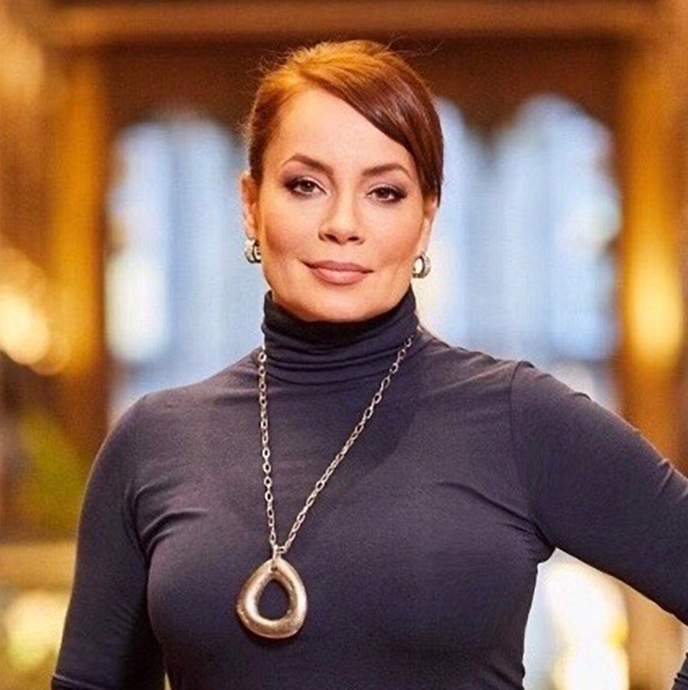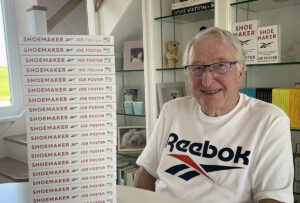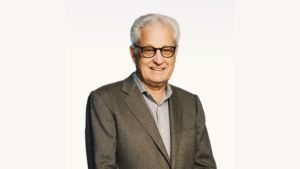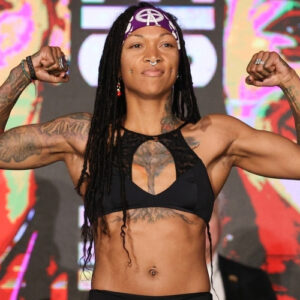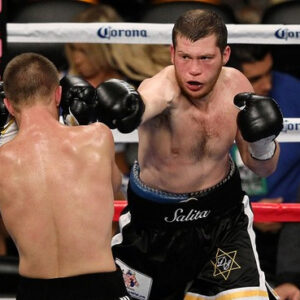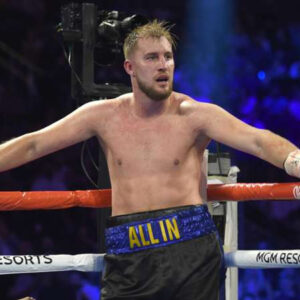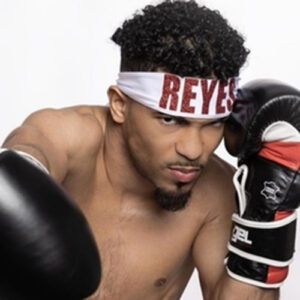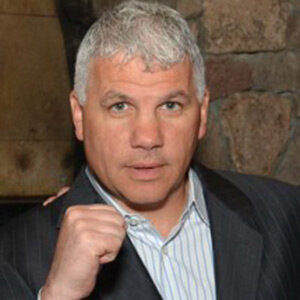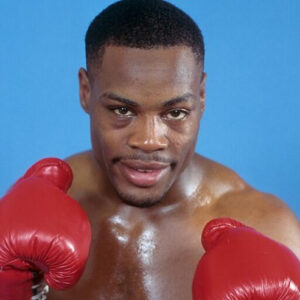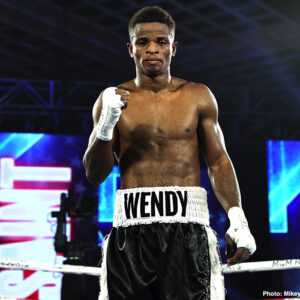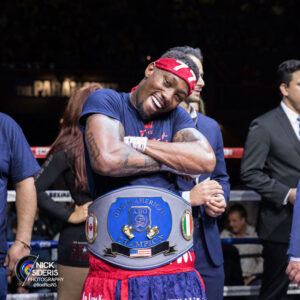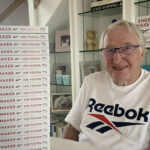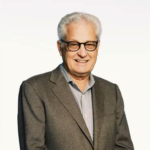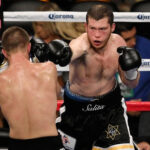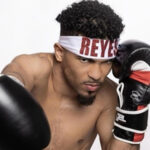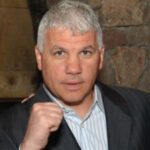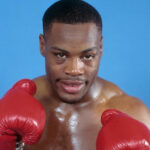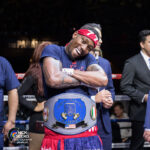View this episode's trailer
Episode Description
Dr. Christina Rahm talks with her long-time friend and colleague Dr. Zsuzsa Csisztu about her early days as a Hungarian artistic gymnast competing in the 1988 Summer Olympics, the current sports landscape, how socialism played a role in her life, and how she balances being a mother, a sports journalist, lawyer and leading voice in health and wellness.
Host
Dr. Christina Rahm
Guest
Dr. Zsuzsa Csisztu
TRANSCRIPT
Dr. Rahm [00:00:00] I’d like to welcome our guest today Zsuzsa Csisztu.
Intro [00:00:12] I hope you guys enjoy this episode of Scientifically Beautiful which is on the Life’s Tough, You can be Tougher network.
Dr. Rahm [00:00:22] She’s led the country of Hungary in numerous ways, not just in professional sports, but also as a journalist, also as a spokesperson for other women and other athletes. So we’re going to talk about how, even though to the world, she’s this beautiful, amazing woman, it has been tough to go through the things that she’s gone through, and we’re also going to talk about her health and wellness and how important it is and how she has gotten to where she is by the support from others, as well as her internal drive. So thank you so much for being on the call and the podcast. I can’t wait to ask you questions. How are you doing today?
Dr. Csisztu [00:01:00] It’s really an honor to join you on this podcast, and actually it’s been so nice that you have all the things that you have been telling about. I’m really honored. It’s fantastic to talk to you and you know, it’s been a couple of years that we know each other, and I’m really, really, really grateful that we had the chance to meet because I think it’s so important when you actually have the feeling that you find a soulmate, someone who has got the same sort of drive, the things and the same, you know, priorities to be a mother and in the same time, someone who loves her profession.
Dr. Rahm [00:01:42] I met you, a couple of years ago, actually more than a couple of years ago, but I think I met you in Hungary and then I started thinking, maybe it was Austria because I met your husband as well. He’s a doctor and I was working in the field of health and nutrition. He’s a famous doctor in your country and in Europe and Eastern Europe. And I will have the opportunity, hopefully to be able to do a podcast with him as well. But I was amazed when I met you and, you probably don’t know this, but people shared with me magazines that had you on the cover of them. You did not share that with me. I had no idea. So I want to start with this. I wish, you know, when I met you, I just liked you instantly and I thought you were his wife. And so I just was impressed at how you held yourself, how you presented yourself, the way that you acted and treated others. I would never have known you were famous or had been a child athlete and had all that attention. Honestly, I would never have known you just did not act like you had any… I think you didn’t act arrogant and all. You just acted confident, which I really respected about you. So I want to start and give the audience the ability before we get into even more the podcast to know a little bit about you. We are going to talk about you as a wife and a mother, but I’d like for you to go back and share with us your childhood and who you are and what you did. And then, of course, if you want to share things about how hard it was, that’s something we would love to hear too. But I’ll be asking those questions anyway. So you could just start with really telling us about yourself. I know everyone’s going to be extremely interested.
Dr. Csisztu [00:03:36] The best to my life is gymnastics and, you know, a high profile sport. When I was five and that’s basically when I started gymnastics and it was basically a way that I wanted to do gymnastics. I was very energetic, very flexible. My mother was a ballet dancer. She also did some gymnastics, but I would say there was no other choice for my parents but to take me to gymnastics because I was doing all these flips around that I was almost like dangerous for my kindergarten mates. So they said, OK, it’s better if we put her into the gymnastics, you know, the gym and then she can do whatever she likes. So basically, I really felt that this was my environment, the place where I should be. And of course, gymnastics, we know all that, you know, and especially American gymnasts are so famous; I mean Simone Biles is now the current number one star in gymnastics. I really wonder how she’s going to accomplish even higher goals in the Tokyo Olympics. But in my time, you know, Eastern Europe and Hungary was also in the top 10, the top six. So I think it was a good school. It was a very good environment to be in, you know, good coaches. But where you really started realizing that this is something more than an everyday play, you know that we can play around and we can do some flip-flops and, you know, just cartwheels. It was about the age of 14-15, you know, when the junior membership of the national team became reality. And then by this time we were, I would say practicing two times, three to four hours a day, almost seven-eight hours per day, six days a week.
Dr. Rahm [00:05:28] How old were you?
Dr. Csisztu [00:05:31] I was 14, 15, something like that. So I was just finishing elementary school, starting high school, basically. And you know what? You really had to decide when it was getting really tough: What is the next step; to give up or to keep going and to move forward with my goal, which would be, of course, participating in the Olympic Games? And I also have to tell you because, you know, our listeners might not be aware of that. In that era, back in the 80s when I was doing gymnastics, you know, in a politically socialist country, there was a big division between the two of us, the western world and the eastern world. So, for example, there was a huge, I would say, a real, real athletic tragedy, I should say, in my life. The 1984 Olympics, which was in Los Angeles, which was… I was supposed to be a part of the Hungarian national team. But because of the political situation, you know, the socialist bloc to which Hungary belonged back then, boycotted the Olympic Games, which was… which was… I still remember the day when I was standing on a couple of the beams listening to the radio when, you know, the anchor was actually announcing the decision of the political leaders of Hungary, you know, joining the Soviet Union is going to, you know, just to be told from the Olympic Game and stay, you know, away from the Olympics and we were really, really, you know, making a very huge effort to actually be in the best shape ever in our lives. And when politics steps in this today, you know, it’s also very difficult. And for me, it’s very, very saddening to see how sometimes and also in support of the Tokyo Olympics is also, I would say, has to face this kind of burden, this kind of difficulty because of the, you know, the, I would say, the effect of the pandemic. I really hope that this Olympic Games, even though it’s going to be now without spectators, this is going to be actually, you know, I would say, in a bubble without any spectators. But I still would believe that at least for the sake of the athletes, you know, it would be an Olympic Games that at least goes through because I can really remember what a real tragedy it feels for an athlete, but an outside reason, you know, people making decisions, you know, behind your back and above you, can really affect your life. So this was one of one of the toughest points of my life, but I kept on doing gymnastics. And of course, I went to high school and my parents were fantastic people helped me to come over and this sort of really difficult period. So I had my high school graduation and then I was really hoping to be a part of the national team for the Seoul Olympic Games in 1988, which I actually made to be a part of the Hungarian national team. Besides that, I also participated in World Championships in Rotterdam, European Championships, which I, you know, finished in the first sixth and seventh. So the top, that always the top eight, the top six from Hungary and also internationally. But the Olympic Games, this is the goal of a professional athlete. You know, this is something that you really want to be a part of. So especially with that sort of a disappointment from four years before, of course, it was the greatest dream to be there in Seoul. And I made it and I finished in the eighth place in the Seoul Olympic Games, which was a fantastic experience. And after all these difficult years, I think it was, not just for me, of course, but for the whole athletic world. It was probably the first, I would say, real relief after two boycotted Olympic Games because Los Angeles was the second one for years, even before that in Moscow. The western world, you know, we tell them and then they didn’t participate, so I would say it was really finally the time when a melting pot came together and you could feel that’s kind of a real special atmosphere of the Olympic Games, which is not a world championship, which is not, I will say, a big world event, but an Olympic Games where you can meet other athletes, where you can cheer for some others, where you can really feel that that’s a huge international, you know, global event of the sporting world. Of course, many things have changed, unfortunately, since. So I would say the business of viewpoints and of course, the finances and many aspects of sports has been changing a lot. And I’m not even saying that this is a very nice way. How sport is evolving in this kind of, you know, under this kind of circumstances. But you have to understand, of course, that this is, I would say, one of the biggest areas of the whole entertainment business worldwide. Sports is probably one of the biggest business of the whole entertainment world. So after the Olympic Games, it was a very special opportunity that came across to my life. As I said, we were still just coming out of the socialist regime, you know, basically opening up to the West, you know, Hungary was going through a democratic change. So in 1989, one year after the Olympic Games, basically Hungary became a free country again, which gave the opportunity for me as well to sort of open up my view. And this fantastic opportunity came from the University of Minnesota to earn a university scholarship through gymnastics.
Dr. Rahm [00:12:28] Wow.
Dr. Csisztu [00:12:28] Which was something absolutely unimaginable, you know, before, for someone coming from behind the Iron Curtain, you know, someone coming from a socialist country that there’s absolutely no way to earn a scholarship in a western country, especially not in the United States. So, but I tell you, you know, nobody really believes and understands today that that was the era I would say, you know, the pre-mobile era. There is no mobile telephone. There was no communications like we are talking today. I was only writing letters and the classical telephone poles. So even to make the first steps and to organize and make a decision as a member of the Hungarian national gymnastics team to leave my country behind, that goal, and move to another continent and to be a university student in a completely new country, it was not just a culture shock. Of course it was. But besides that, it was, I would say, a challenge that I could never imagine, you know, how it really will become reality when I go there, so it was actually a very difficult decision. Of course, it was a great opportunity. But I was really afraid to take it, but I took it. So I I decided to be a part of the University of Minnesota gymnastics scene, and that gave me the opportunity to start studying there, as you know, and majoring in international communications and broadcasting. And that’s basically when my life, you know, started to, I would say, mount into the area where I’m at now. Ever since, this is basically journalism, broadcasting and sports and of course, ever since many, many, many other things. But the major structure of my career was basically communications and journalism.
Dr. Rahm [00:14:30] Well, so that led you, from what I’ve understood and what people have told me, and you’ve shared a little bit, to become a journalist and to be in the whole TV world. And you are—and I know this because I’ve been to Hungary numerous times, and I’ve been around people in your country—you became a celebrity in your country and we’ve shared that, you know, you actually shared with me that the country of Hungary will compensate their Olympic athletes because they want them to be there and they want to support them, which I actually love and I don’t know if every country is like that, but it was interesting you had that support, but yet you were driven to do all these other things. So, I love to hear how you took your hard work and success as an Olympic athlete and moved it into another world because, you know, I think in life, when life is tough and life is hard one of the things that people that are tougher than the bad things, you know, they take a step forward and they recreate themselves. They don’t feel sad, or maybe they do feel sad for a while—I know that when I made changes in my life, it’s sad to leave things. But if you can look forward to a brighter future, that’s a very positive, good trait. And that’s something I’ve noticed. And you, Zsuzsa, you are always looking for the ability to make another positive impact. So I’d love to hear how you transitioned, you know, and you shared with us that you went to another continent. I can’t even imagine how hard that was. I did not speak the language and to go and then have to be, you know, to transition to another world because especially from a world that’s a communist country and to a western world, I know it was very hard, but I’d love to hear how you went back to your country and then made a further transition to become a leader in a different way for the country of Hungary.
Dr. Csisztu [00:16:32] Yeah, absolutely. I mean, it was really a difficult decision because as you say, you know, I could have been, you know, someone who stays in gymnastics, becomes a coach. And of course, I really had a lot of experience which I could have, you know, passed over to the next generation as a coach and stay in gymnastics, maybe to become a judge, which I, of course, I never really loved gymnastics. It was always, you know, after the number one love in my life for many years. But I always had the feeling that I have some other other focuses, which is mostly about, as I said, communication, and it was fantastic to actually take a step towards that direction, which was absolutely unknown, to be the very first woman on sports television in Hungary. There was no women before me on TV, in sports programs at all.
Dr. Rahm [00:17:30] So how was that ZsuZsa. I don’t mean to cut you off. I didn’t know that. So what was that like? Were there some people that weren’t nice about it? I’m..
Dr. Csisztu [00:17:38] Scary, I tell you it was scary, really. You know, at the beginning when I was, you know, I always, I would say, I just write, jump off my gymnastics career and start working on television. Of course it was not as quick, because at the same time I was studying broadcasting, in the United States. So I had some, some university studies. But to do it in your own language, back in your country when there is no history of, you know, having women on TV in sports, of course, it was a really, I would say, right step in that sense. And at the beginning, until I was just co- commentating on gymnastics maybe doing some rhythmic gymnastics, doing some figure skating, give some artistic sports. I think the audience would say, OK, I mean, we can accept her in these fields because I mean, she’s coming from, you know, the Olympic gymnastics. They knew me as an Olympic athlete, of course, so I had some, some background which helped me to start the job. But on the first days when I started anchoring sports news about other sports, especially when I started talking about football telling football results, people were saying, Oh my God. I mean, what is she thinking about herself? I mean, who is she? How dare she? How can she? I mean, this is outrageous that she’s talking about football and basketball. And that is, I mean, a woman would be never credible. I mean, a woman’s voice! Come on! So all those things were the real, the real obstacles. Absolutely, you know, I would say it was such a demanding daily work to try to make people believe that a woman can be credible in a field of sports, no matter what sports we are talking about, especially with 20 years of competitive, you know, sports behind her. So, stereotypes, all kinds of.. you know it’s just that the way how they looked at you sometimes standing next to a football field, you know, you felt like you, you should get out of there. So I tell you, I had a lot of nights, you know, cried over, you know, and it was it was very difficult at the very beginning. I really and I would say in that sense, I was a pioneer to stay on the field and not to quit and not to say, OK, guys, you are right. I mean, I shouldn’t be the one who tries to make you understand that women can do it in a credible and, you know, in a well done way. So, I believed that the only solution would be to be a hundred percent prepared, that I have to be always on the spot. The knowledge is something that you have to be 100 percent sure about. And, of course, the data and all the information you have to have, because if you are not… if you cannot be questioned in that sense, and of course, sooner or later, they will maybe experience that you are not as, you know, “Maybe she’s talking OK. Maybe her questions are appropriate. Maybe her questions are adequate. Maybe she shas some sense of sports. Maybe OK, well, you know, we’re not used to it.” Which was also very important to me that I never wanted to be smarter than those who were coming from, for example, these very traditionally men’s fields like football, basketball, some other, you know, bold sports. I always just wanted to be on the edge of as an ex athlete who is interested in people. And I think as soon as I sort of find this kind of attitude, people started accepting me in this field, but it took quite many years. And as I said, I started working in the Hungarian National TV’s sports department in 1992 on the Barcelona Olympic Games. Actually, this was my first job, which was quite big to do as a co-commentator in gymnastics and then in 1998, so six years later, I was basically the prime anchor of the Football World Cup in France six years later. So, in six years I could make this kind of transition from zero to being accepted in a field which was never even taken by a woman at all before.
Dr. Rahm [00:22:42] That’s amazing. I actually didn’t know that. I didn’t know that you’re the first female commentator. That’s amazing. And you still are doing this with the Olympics even this year, correct?
Dr. Csisztu [00:22:52] Absolutely. Actually, now for a couple of many years, by now, I’m a freelancer because I’ve been working in national TV and I’ve been working in commercial space and I’ve been working on just sports channels, you know, purely sports like ESPN or something. But in Hungary, it’s for the biggest sport for many years. I was actually the very first anchor and the sports commentator of that TV station when they were establishing it. And the last couple of years, and it’s also has something to do with or, I would say, work together. There are so many things that I’m interested in. And as a matter, I’m also focusing on many other things, so I decided to become a freelancer, so I can sort of, you know, prioritize between things which are really important for me. So I actually made my own YouTube sports channel, which is called Csisztu channel (https://www.youtube.com/channel/UCVjigcSjFUkNNy3Wgxnnkug) after my last name, and I’m making from week to week or on my almost one-hour-long sports program, which is which is called Csisztu Sport Cast, which is basically a YouTube video with featured stories about the most famous Hungarian athletes, coaches, Olympic athletes and also some foreigners and foreign athletes as well. So basically, this is something that is really close to my heart because this is, I would say, my number one television or in the video world. But besides that, of course, I’m doing sport cast, which is sort of like radio-format. And I’m also writing, you know, I’m leading one of, I’m the leader of a sports department of a weekly magazine, which is also a new project. And besides all that, I’m participating and doing a lot of pro-bono work for all kinds of NGO activities, mostly helping people in less fortunate situations. For example, the transplanted athletes are really close to my heart and I’ve been their mentor, and also helping them for more than a decade by now.
Dr. Rahm It’s wonderful.
Dr. Csisztu And besides, just because you talk about that, when I finished my university studies in the States, later on, I decided to extend my studies and I finished University of Law and I specialized myself in sports law because I always wanted to sort of get as close to sports from many different aspects as possible. And I also felt that this is something that would be very useful for me. So I basically, I specialize, I have a master’s degree in sports law as well. Even though, you know, my first field, as I said, is still journalism.
Dr. Rahm [00:25:59] And through that, you had to… you, you’re married.
Dr. Csisztu [00:26:02] Yes.
Dr. Rahm [00:26:02] You’ve been divorced and remarried, and… like me.
Dr. Csisztu [00:26:06] Well, it’s not a secret. I mean…
Dr. Rahm [00:26:09] I know. Yeah. And you shared with me, you may remember this, and we don’t need to get off on this topic. But you know, even that was painful because as a female, I think we just hold everything on our shoulders, you know? And but you, I think the world of your husband, you married an amazing doctor that actually works with professional athletes. And that’s kind of how we met your… You’ve shared with me and I do want us to touch upon that how important health and wellness has been to you, not just because your wonderful husband helped your parents and you met him and fell in love through basically a painful experience. But you saw how wonderful he was, helping your parents with their health in Hungary. And then you have two beautiful boys. Correct?
Dr. Csisztu [00:26:55] Exactly, exactly.
Dr. Rahm [00:26:57] So you had to juggle a lot while you’re doing this. And I have to say this, you know, we always say because I have children and it’s a lot, you feel like you’re failing in one area while you’re succeeding in another, and it’s a constant battle. But I think that you’re an amazing mother and an amazing wife, and your husband has shared that. I’ve heard him multiple times, so I’d love to know the secret to that. And I’d love to know how your experience and even the adversity, you know, the hard things you went through have made you a better mother and have helped you in your life. I’d love to hear a little bit about your opinion on that because I know that’s a huge part of you. And often when it comes to our careers, we don’t talk about that. So I would love on the show to hear about how you were able to balance that and even maybe, you know, advice you might give other women in that situation.
Dr. Csisztu [00:27:53] Well, yes. Thank you, Christina. I mean, it’s easy for me because I have role models like you are. So really, it is something that it honestly, it really helps if you can see other women who are dedicated mothers. But in the same time, as I said, people who love their profession and I don’t think, you know, the two things should be, you know, a matter of choice, either this or that. I mean, what I’m always trying to say, and you know, you are a fantastic example of that, too, is that, it’s difficult. Of course it is a lot of, you know, energy. A lot of dedication, very much of organization, you have to be sort of an artist in that sense. How you can organize your time and really manage your time. I mean, we always talk about this “time” in management and how important it is. Before I became a mother and, I suppose you also had the same experience and never really, we have been told that this is going to be one of the most difficult things: “time” and how you can do all you got to. You know, it’s… it’s… well… But I think it is possible. So what I’m saying is that, of course, it’s difficult. Sometimes, you know, I’m losing on mostly my sleeping time. But, in the same time, it gives me so much. It’s really, you know, the source of energy to my heart and to my soul to have, you know, this kind of support of my husband and of my sons. Because, you know, this is basically, as I said, the source of everything which is important to my life, mostly. But when I go and do my profession, I always feel that I can be relaxed, because if I do my thing my husband will take care of the boys. And if he is concentrating on his work, which I’m absolutely supporting him in, of course, I will be someone who is doing the background work. So I think this is always, you know, going like this and that is something that we can. There are certain projects which we are involved together in, and I’m very happy for that and actually working with professional athletes for him as a doctor and a nutritionist it was basically my idea and I was really keen on, you know, to start convincing him to, let’s try to look over and then to take care of the athletes because I had from my past some really, really bad experience. You know, how much we did not know about good nutrition. And you know, since basically we committed to our bodies because we did it badly, you know, we didn’t drink enough, we didn’t eat well, we were starving ourselves just to have the competition weights like we needed and we actually had to suffer the consequences of that. And I told him that if I could help in anything to this generation and these professional athletes of these years, that it would be definitely something to help them to find the best way, how they can prepare their body for this kind of huge physical and mental challenges, of course, at the same time. So and on the other hand, which is just as important, as a mother to try to find the healthiest way for my family, how we can feed them and how we can find the best nutrition for our boys and for ourselves. Of course, we would like to live long. We would like to see them grow up. We would be, we would like to be grandparents, even great grandparents, if we can make that. Of course, that’s the goal.
Dr. Rahm [00:32:00] Yeah, yeah.
Dr. Csisztu [00:32:02] But as you, as we say, you know, it really makes a real difference what you eat. I mean, you are what you eat. That’s the saying. And we do feel this is, you know, one of the cradles of our lives that you have to be very cautious and conscientious about what you put into that body that is serving you, you know, 24 hours and seven days a week. And if you’re a professional athlete, of course, it’s even more important, because then your body is exposed to that kind of, you know, physical and mental and stressful situation that you have to be bear on your body, you know the best way you can.
Dr. Rahm [00:32:51] Well, and I think that’s what led both of us to be part of a founding organization called the International Science Nutrition Society so that we can help people with nutrition through science. And I know that I’m very thankful to be working on projects that we will launch into this year with formulas with your husband actually as one of the scientists and doctors working on that, and I think the value you bring did your experience Zsuzsa and your influence and your ability to help people make positive impacts on their life and to speak as an example is huge because I agree with you, not just in your country, but in our country. It used to be the Olympic athletes. We didn’t, you know, the nutrition and how it was dealt with, we’ve come so far that we still have so far to go and as you know, like you said, the nutrition that you put in your body and what you eat and what you take, it’s so important. I don’t think people realize, you know, because we have all these medications. But if you could take care of yourself, then you can support your body and being healthier and being, well, one of the things I like about Hungary is I feel like you guys are aware of the GMOs. You are aware of the things that are modified, that the preservatives that aren’t good for the body. And I don’t know if that’s part of your history or why you guys are… It’s definitely, in my opinion, a spokesperson for that and an individual because of his background, not just in medicine but functional medicine and dealing with how to make, you know, our machines, our bodies even better so that they can perform in a way and so that we don’t hurt them, you know, because you as an athlete, you shared with me that some of the things you did caused effects on your body later because you were this professional athlete. You know, there’s wear and tear on your body through that sort of thing.
Dr. Csisztu [00:34:51] Basically, it is this crucial what you’re saying, and I know that’s mostly the problem when you are a professional athlete that you know the time, you know, and to be prompt right there, the right moment is so important. But sometimes they forget about, you know, the effects later on and then the consequences later on. So what I’m saying, you know, this is the easiest to take the pills and to, you know, just have some painkillers and let’s go along and let’s do that. And nobody really takes care of that athlete’s long-term consequences. What is going to be, afterwards, they’re going to live their life afterwards, what is going to happen to their body, not just as an athlete, but as a person? I mean, come on. I mean, athletics and sport is going to be finishing once in your life and you would like to live your life as a healthy person. Of course, if you destroy this machine, then it’s going to be a little bit more difficult. So my mission and our mission together is to have these young athletes to understand, you know, the importance of that, that process, how you can help even from a young age and to find I would say, you know, in a smart way to build up a nutritional plan for you. And it’s a very major difference. Which sport you are in, what period of your competition or practice era you are in because it always requires a different kind of nutrition. It always makes a major difference. You know how old you are, how many years you have been in athletics and in sports, and basically how long you plan your career. So those are the major bullet points, I think, which a young athlete has to understand in order to help prepare their body for this kind of challenge is what the real Olympic and athletic sports means. And I’m so happy that my husband helps these youngsters and of course, not just adult athletes, because he has a lot of patients, you know, from everyday life to make them understand that, you know, today what I was, I would like to emphasize is that like in everything and especially with the online sphere which is around in our lives, there is such a huge noise in nutrition. It’s so difficult to find the good path unless you have scientists like you are, like my husband, and people who are working with that kind of dedication to help others. So our major goal and our mission is to do it from this kind of attitude that we would like to help. You know, sometimes we had bad experience. I had a lot from my personal athletic background. So I know how could I, if I could do it a little bit different, I know that my career would have been even longer. It would have made much less pain. It would have been probably easier with much less inflammation and all those kind of everyday burden that you have to, you know, sort of handle and carry with you, whether you’re a professional athlete. So I think in that sense, it’s very important that I have a credibility to athletes that they believe what I’m saying. I’m saying it because I would like to help. And on my side, there is a scientist and doctor, you know, and who is also, as you said, not just the doctor, but he’s also involved with functional medicine. And he has a huge experience with all kinds of different diagnostic tools. And with a special system, he actually, you know, created and evolved in the last decade, I would say, which is just as important to help these people and to make their professional athletic life easier and of course, some other patients to make their life easier and healthier, which is the most important, after all.
Dr. Rahm [00:39:22] Well, I would like to do another podcast with you when you get back from the Olympics because you’re leaving this week, next week to go?
Dr. Csisztu [00:39:31] Well, actually, I wish… you are right. I would love to. I have been in eight Olympics in my life. Yeah, I’m not so old yet, but at this time I can’t go because of the pandemic situation. And as a journalist, you know, basically there is a playbook which makes I would say, our work, so difficult, almost impossible to meet with athletes so we decided that it’s probably going to be the best solution that we have working with big news agencies. You know, basically getting the material and the source of information who are there at Tokyo and what we are going to do, what we are exactly doing now. We are going to have these kind of podcasts and Zoom interviews from the Tokyo Olympic Village and of course, in the TV studio. So that’s the plan at the moment, but actually my contacts and my relations with… even today I met the most famous Hungarian fencer, who is a two-time Olympic champion from the last two Olympics, from Rio and from Athens, from from London sorry. And he’s planning to win the third one in a row, you know, back to back, which is absolutely, never, ever happened before in this sport. And he’s a fantastic Hungarian fencer. So I would say my relation to the Olympic athletes is very lively in a daily basis. I really follow their plan about the Tokyo Olympics and I think it’s going to be very exciting and all I can wish to them I hope they can come out very well from this very difficult situation to have the whole Olympic Games in a bubble without spectators.
Dr. Rahm [00:41:27] Well, I wish them the best and I wish you the best. I know you’re extremely busy during the Olympics and hopefully…
Dr. Csisztu [00:41:35] I’m sure I will have a lot to tell you about after the Tokyo Olympics. I would love to repeat this conversation.
Dr. Rahm [00:41:43] I feel like I got to this much of the interview about you, and I want to get to so much more. But we will get to that at a later time. And I just want to thank you as usual for how hard you’ve worked. You’re a very strong, admirable woman, and I’m thankful to call you a friend. I love the opportunity that we have to help people in nutrition and science. And I know it’s been a hard life for you, but you’ve done a phenomenal job. So thank you so much and…
Dr. Csisztu [00:42:15] Thank you Cristina to hear from you. I mean, it’s a real honor, really.
Dr. Rahm [00:42:20] Thank you. I always miss you. I can’t wait till I get to see you soon, and I’m glad that the world’s opening up a little bit so we can get back together soon. I really enjoyed talking to Zsuzsa. Science is beautiful and we in this podcast, Scientifically Beautiful, get to follow people and talk to people that really have made a difference on the science side as well as the just world side. And as you can see, with Zsuzsa she uses science to be a better athlete, to be a better mother, to be a better wife and to be a better journalist, because it’s so important to her as far as health and nutrition and as she shared with you she’s also made it a mission to help other athletes, so that they can have better bodies and have a better life. Thanks so much. I hope everyone has a great evening.

